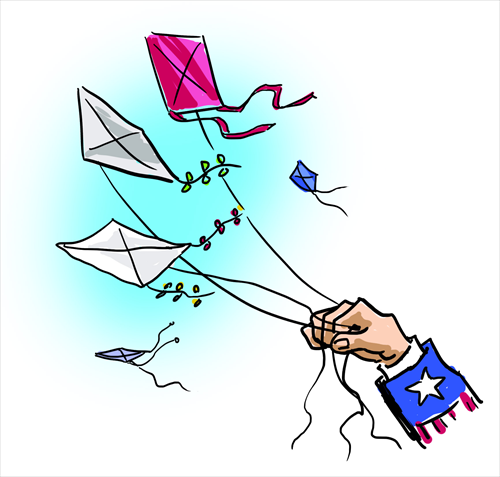HOME >> OP-ED
US tendency to unilateralism hurts both transatlantic and transpacific partners
Source:Global Times Published: 2013-11-11 20:38:01

Illustration: Liu Rui/GT
In early December, EU member states will decide whether any definitive duties will be imposed on Chinese solar panels. This discussion, I believe, will benefit from the current turmoil between Europe and the US.
There was a great unwillingness to have a robust discussion with China on solar panels a while ago, but today the mood is shifting in favor of China. China may be a beneficiary from the current transatlantic difficulties.
The China-US-EU trilateral relationship is tricky. I think Europe should not be playing the game of the Americans. In trade policy in particular, it is a mistake that Europe is now negotiating a free trade agreement with the US, considering that the US is also negotiating another big transpacific partnership project that excludes China.
We should be putting our money where our mouth is, that is the multilateral trading system, and shouldn't be actively contributing to the destruction of the WTO, or to making it a less relevant organization.
Certain short-term economic interests have prevailed in Europe, and that is the opposite of a long-term strategy for the management of international economic relations.
Whether we like it or not, by participating in a transatlantic agreement, in which by the same time not having a similar project with East Asia, we are doing harm to our long-term interests. In recent years, Europeans have repeatedly been posed to US unilateral decisions. This is not just the invasion of Iraq, which was not greeted and welcome in Germany and France, while others have different positions, for instance, Britain is sometimes closer to Washington than to Brussels.
Economically, too, not all the US decisions are welcome. The current policy of the federal reserve exerts pressure on the European Central Bank to repeat this kind of monetary policy.
But it provides probably too much liquidity to the markets, and results in problems for European Central Bank and other central banks that have to bring down interest rates, because the Americans have brought them down to virtually zero. These decisions of the US are sometimes difficult to understand.
After 2008, there was a lot of talk that we should have global rules in finance.
The reality is the Americans went ahead and reform their own financial legislation, so the rest of the world could follow what the Americans are doing or develop their own rules.
This year the US banking supervision is departing from an old principle of banking regulation, which is called home country regulation - so far banks are regulated where they come from, but the US no longer accepts that.
The US now regulates the banks where they are active. In the US, host country regulation is replacing home country regulation, which means the Deutsche Bank has to hold capital for its US operations in New York, rather than have that capital in Frankfurt.
That is a structural change. Once again the US just did that without talking to anybody before that. So the US is a good friend, but not always an easy one.
The US has national interests in economic policy as well as security policy, and it puts those interests very high on its agenda. We do see an increasing unwillingness of the US to engage in multilateral formulas, which makes it difficult for other countries.
We know that in US foreign policy, you have a range of schools of thought, and they are always there. Sometimes this school dominates, and sometimes that one. At the moment, those pushing for cooperation are weak.
In Asia, the US has carefully crafted the Trans-Pacific Partnership to fit its own economic interests and needs. Whether it would make sense for China to enter an agreement in which it has relatively little input remains to be seen.
In principle, I'm in opposition to those preferential agreements, because they reintroduce discrimination into international relations - you differentiate between friends and enemies in international relations. That's not a good idea.
China could contribute meaningfully to strengthening the WTO. Maybe there should be a joint China-EU initiative to bring the WTO back on the agenda. That would be more meaningful and prevent other preferential frameworks from weakening the system.
The article was compiled by Global Times reporter Chen Chenchen, based on an interview with Heribert Dieter, a senior associate with the German Institute for International and Security Affairs and a non-resident senior fellow with Chongyang Institute for Financial Studies, Renmin University of China. chenchenchen@globaltimes.com.cn
Posted in: Viewpoint